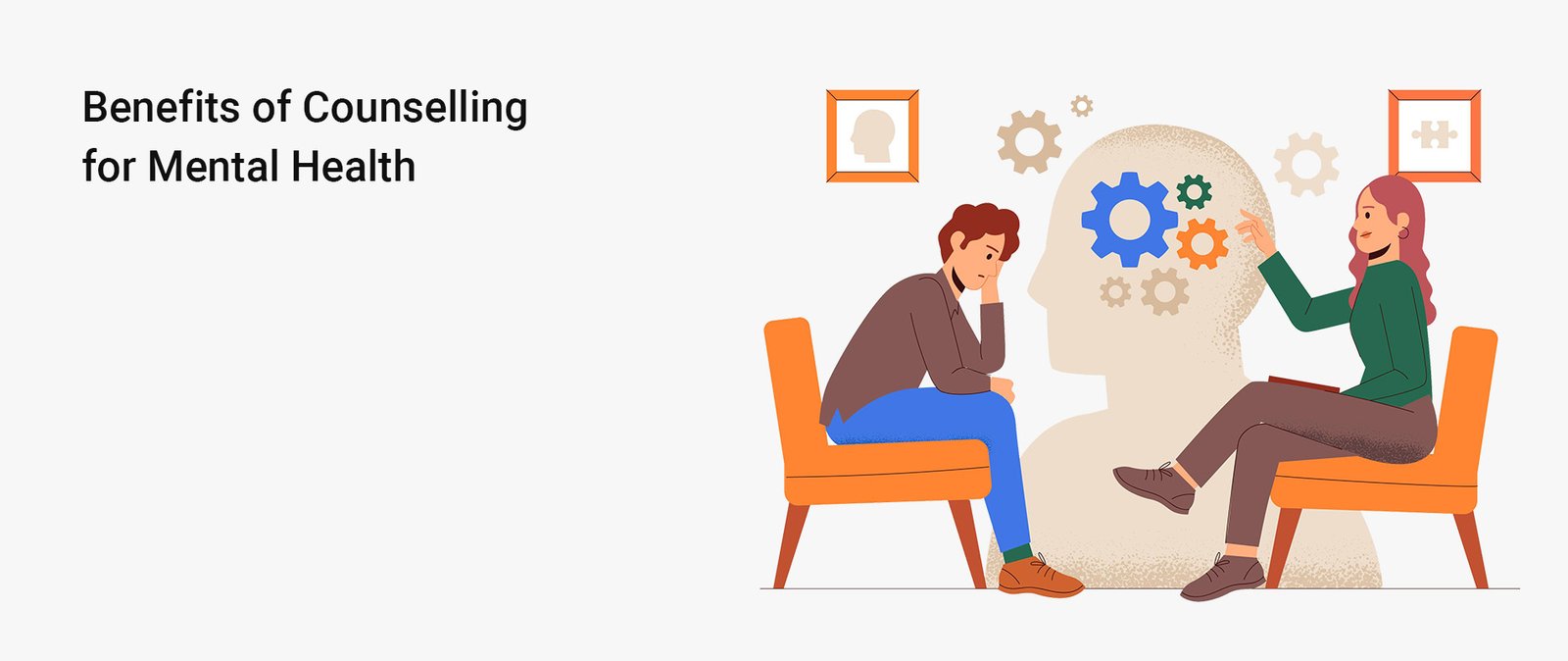Mental Health Counseling - Truths
Mental Health Counseling - Truths
Blog Article
What Does Mental Health Counseling Do?
Table of ContentsExcitement About Mental Health CounselingThe smart Trick of Mental Health Counseling That Nobody is DiscussingMore About Mental Health CounselingWhat Does Mental Health Counseling Mean?How Mental Health Counseling can Save You Time, Stress, and Money.
Through treatment, you can acquire insight into your very own patterns of habits and communication, which can bring about even more meeting and satisfying relationships with buddies, household, and romantic companions. What we assume, we manifest. If you're consumed with unfavorable feelings and unfavorable thoughts that are disrupting your life, treatment can aid., or there are other adverse means you behave. Therapy can aid you change those habits that are having an adverse impact on your globe and partnerships.

The value of therapy goes past your psychological wellness. Getting therapy to address specific facets of your life can help you be much more productive in various other areas, consisting of work. Some research study has actually also shown that there's a direct connection between looking for mental health and wellness aid and a reduction in missed out on job.

How Mental Health Counseling can Save You Time, Stress, and Money.
There are also extra advantages of therapy than just the ones we have actually reviewed., or construct partnerships (enchanting or those with family members or friends) in a healthy means.
For the purpose of the here and now research, perceived benefits and barriers to mental health and wellness help-seeking are being explored. Previous study located that regarded barriers have a significant impact on university trainees' health and wellness habits choices (Von Ah, Ebert, Ngamvitroj, Park & Kang, 2003). Viewed advantages and barriers to help-seeking were especially picked as a result of their influence on decision-making and eventually action (Glanz, Rimer, & Su, 2005).
The existing research looks for to take a look at whether or not stigma serves as a barrier to treatment among college trainees. Amongst these were: (1) choosing to deal with psychological health and wellness problems themselves, (2) not having adequate time to take part in therapy, (3) concerns concerning whether mental health and wellness therapy is reliable in remediating troubles, (4) a belief that stress and anxiety is regular or the trouble will get far better without therapy, (5) lack of money, and (6) fret about what others would think if they found out concerning therapy participation.
(2006) reported comparable variables as obstacles to looking for therapy and also found that a skepticism of carriers may restrain students from seeking aid. Staff in school psychological health and wellness centers might be perceived as hostile, and long wait times for solutions may be "off-putting" for students. Variables facilitating much more favorable perspectives are typically at the contrary pole of those factors recognized as obstacles.
The Ultimate Guide To Mental Health Counseling
One in 3 (34.6%) reported living on campus and one in 4 (23.3%) reported coping with parents. Nearly half of pupils were involved in campus organizations and 1 in 10 reported remaining in a society or sorority. Greater than one-third of students (38.1%) reported that they had a relative or buddy with a diagnosed psychological health and wellness disorder.

Getting The Mental Health Counseling To Work
Univariate F-tests recognized specific subscale items that substantially varied. Women were less likely than men to view people that most likely to counseling as psychologically weak, individuals that most likely to counseling as insane, to feel that people with psychological illness ought to manage problems by themselves, that people who go to counseling as unable to address issues, that individuals that most likely to therapy are careless, and to really feel that people who most likely to counseling are various from typical people in an adverse method.
Research results disclosed that ladies were significantly less most likely than males to hold stigma-related attitudes. This follows previous research which additionally discovered that males hold greater degrees of perceived preconception than females (Chandra & Minkovitz, 2006). Based on research study searchings for, it is obvious that males may be less most likely than ladies to seek therapy because of reduced viewed obstacles along with high stigma-related perspectives.
The Definitive Guide for Mental Health Counseling
In enhancement, university why not try this out health specialists might supply academic programs targeting men with info on the advantages of mental wellness therapy and the significance of looking for assistance when needed., the existing research discovered no significant differences in the number of viewed obstacles to help-seeking habits based official site on sex.
This finding was unanticipated and can highlight that those who had gotten counseling had a much better concept of wait times and other "accessibility" barriers that may make it challenging to begin therapy. Possibly, participants who have actually obtained therapy sight much more obstacles than individuals who have actually not received counseling given that looking for counseling services once more could entail worry of self-disclosing personal information to a brand-new therapist.
Report this page